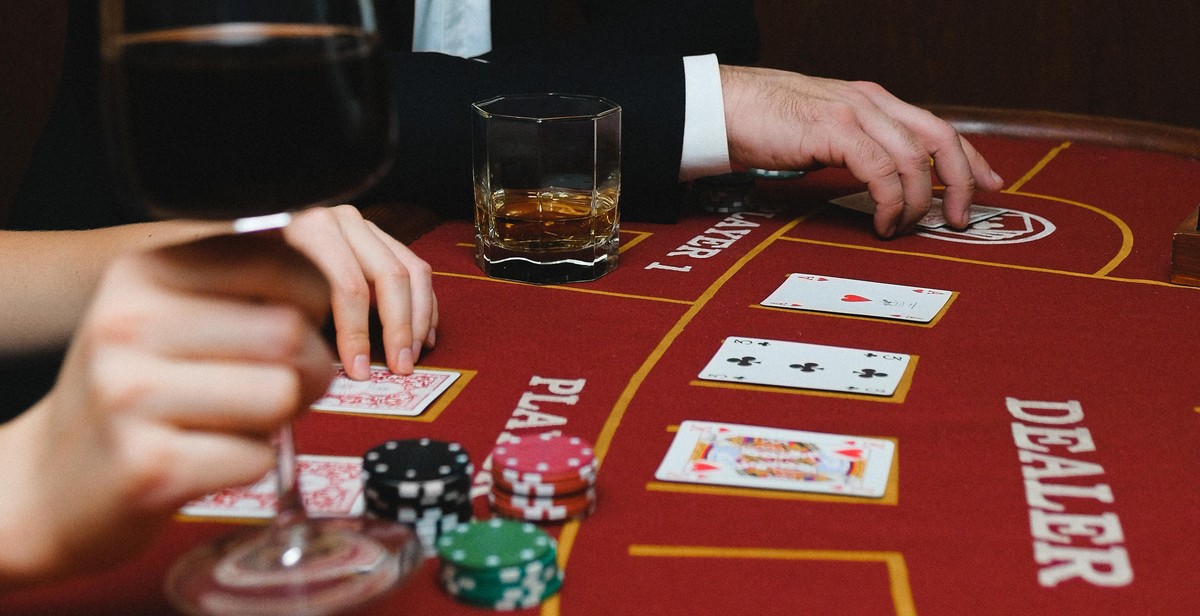How to Improve Your Poker Tournament Skills
Playing poker is not just about luck. It requires skill, strategy, and a lot of practice. Whether you are a beginner or a seasoned player, improving your poker tournament skills is crucial to your success. In this article, we will discuss why improving your poker tournament skills is important and provide you with tips to help you become a better player.
Why Improving Your Poker Tournament Skills is Important
Poker tournaments are highly competitive and require a lot of skill and strategy to win. Improving your poker tournament skills can help you:
- Win more tournaments
- Increase your earnings
- Become a more confident player
- Improve your overall poker game
Whether you play poker professionally or just for fun, improving your tournament skills is essential to your success. It can help you make better decisions, read your opponents more accurately, and avoid common mistakes that can cost you the game.
Now that we know why improving your poker tournament skills is important, let’s take a look at some tips that can help you become a better player.

Mastering the Basics: How to Improve Your Poker Tournament Skills
Improving your poker tournament skills requires a strong foundation in the basics of the game. Whether you’re a beginner or an experienced player, mastering the fundamentals will give you an edge over your opponents and increase your chances of winning. Here are some essential tips for mastering the basics:
Understanding the Rules and Hand Rankings
Before you can become a skilled poker player, you need to understand the basic rules of the game. This includes knowing the hand rankings, which determine the value of each hand. A good starting point is to memorize the ranking of hands from highest to lowest: Royal Flush, Straight Flush, Four of a Kind, Full House, Flush, Straight, Three of a Kind, Two Pair, One Pair, and High Card.
Learning the Importance of Position
Position is a crucial element of poker strategy that many players overlook. Your position at the table determines the order in which you act, which can have a significant impact on your game. In general, being in a later position gives you an advantage over your opponents, as you have more information to work with. This allows you to make better decisions and take advantage of your opponents’ mistakes.
Bluffing and Reading Your Opponents
Bluffing is an essential skill in poker, but it’s important to use it wisely. The key is to read your opponents and determine whether they’re likely to fold or call your bluff. This requires a combination of observation, intuition, and experience. It’s also important to be aware of your own body language and avoid giving away any tells that might give your opponents an advantage.
Reading your opponents is another critical skill that can help you win at poker. This involves observing their behavior, body language, and betting patterns to determine what kind of hand they have. By paying attention to these cues, you can gain valuable information that will help you make better decisions and improve your chances of winning.
By mastering these basics, you’ll be well on your way to becoming a skilled poker player. But remember, practice makes perfect, so keep honing your skills and testing your strategies to stay ahead of the competition.

Developing Your Strategy
Improving your poker tournament skills involves developing a solid strategy that can help you navigate the various stages of the game. Here are some key elements to consider when developing your strategy:
Playing Aggressively vs. Playing Conservatively
One of the most important decisions you’ll make in a poker tournament is whether to play aggressively or conservatively. Both approaches have their advantages and disadvantages, and the best strategy will depend on a variety of factors, including your opponents’ playing styles, the stage of the tournament, and the size of the blinds and antes.
Playing aggressively involves making bold moves, such as raising and re-raising, in an effort to put pressure on your opponents and win pots. This strategy can be effective if you have a strong hand or if your opponents are playing passively. However, it can also be risky, as it can lead to big losses if your opponents have better hands or are able to outmaneuver you.
Playing conservatively, on the other hand, involves playing more cautiously and avoiding risky moves. This strategy can be effective if you’re playing against aggressive opponents or if you’re in a weak position. However, it can also lead to missed opportunities and can make it harder to build a chip stack.
Choosing the Right Starting Hands
Another key element of a successful poker tournament strategy is choosing the right starting hands. This means understanding which hands are likely to be strong in a given situation and which hands are likely to be weak. Some common starting hands include pairs, suited connectors, and high-value face cards.
However, it’s important to keep in mind that the strength of your starting hand will depend on a variety of factors, including your position at the table, the size of the blinds and antes, and the playing styles of your opponents. As a general rule, it’s better to play conservatively with weaker starting hands and aggressively with stronger ones.
Adjusting Your Strategy Based on the Stage of the Tournament
Finally, it’s important to adjust your strategy based on the stage of the tournament. In the early stages, when the blinds and antes are low, it’s generally a good idea to play conservatively and focus on building your chip stack. In the middle stages, when the blinds and antes are higher and the field has thinned out, it may be necessary to play more aggressively in order to stay competitive. And in the late stages, when the blinds and antes are at their highest and the remaining players are all skilled competitors, it’s important to be flexible and adjust your strategy based on the specific situation.
By developing a solid poker tournament strategy that takes into account these key elements, you can improve your chances of success and become a more skilled and confident player.

Practice and Preparation
Improving your poker tournament skills requires consistent practice and preparation. Here are some tips to help you enhance your game:
Utilizing Online Resources to Improve Your Game
There are various online resources available to help you improve your poker tournament skills. Take advantage of these resources to learn new strategies and techniques. You can watch videos, read articles, and participate in forums to gain valuable insights from other players.
One popular online resource is PokerStars School, which offers free poker courses and tutorials. You can also find numerous poker training websites that offer paid subscriptions for more comprehensive training.
Analyzing Your Game and Identifying Areas for Improvement
Analyzing your game is crucial to improving your poker tournament skills. You need to identify your strengths and weaknesses to develop effective strategies. You can use software like PokerTracker or Hold’em Manager to track your game and analyze your performance.
Reviewing your hand histories can also help you identify areas for improvement. Look for patterns in your gameplay and analyze your decisions. This will help you identify mistakes and improve your decision-making skills.
Participating in Freeroll Tournaments to Hone Your Skills
Freeroll tournaments are a great way to practice your poker tournament skills without risking any money. These tournaments are free to enter and offer real cash prizes. You can participate in freeroll tournaments on various online poker sites.
Freeroll tournaments can help you hone your skills and gain valuable experience. You can practice different strategies and techniques without worrying about losing money. This will help you build confidence and improve your overall game.
| Tip: | Set specific goals for yourself when participating in freeroll tournaments. This will help you track your progress and identify areas for improvement. |
By utilizing online resources, analyzing your game, and participating in freeroll tournaments, you can improve your poker tournament skills and increase your chances of winning. Remember, consistent practice and preparation are the keys to success in poker tournaments.

Staying Focused and Disciplined
One of the most important skills that a poker player can have is the ability to stay focused and disciplined throughout a tournament. This means managing your bankroll effectively, avoiding tilt, maintaining a positive mindset, and avoiding distractions.
Managing Your Bankroll and Avoiding Tilt
One of the biggest mistakes that new players make is not managing their bankroll properly. This can lead to tilt, which is when a player becomes emotionally invested in a hand and starts making irrational decisions. To avoid this, set a budget for yourself and stick to it. Only play at tables where the stakes are within your budget, and never risk more than you can afford to lose.
Another way to avoid tilt is to take breaks when you feel yourself becoming frustrated or emotional. Step away from the table for a few minutes, take a deep breath, and clear your mind. This will help you to make better decisions when you return to the game.
Maintaining a Positive Mindset
Poker can be a mentally challenging game, and it’s important to maintain a positive mindset in order to succeed. This means staying focused on the game and not letting your emotions get the best of you. Avoid negative self-talk and instead focus on your strengths and strategies.
One way to maintain a positive mindset is to set achievable goals for yourself. This could be as simple as winning a certain number of hands or making it to a certain point in the tournament. By setting achievable goals, you’ll feel a sense of accomplishment and motivation to continue playing.
Avoiding Distractions
Distractions can be the downfall of even the most skilled poker players. It’s important to eliminate as many distractions as possible so that you can stay focused on the game. This means turning off your phone, avoiding conversations with other players, and not getting too caught up in the ambiance of the casino.
Another way to avoid distractions is to stay organized. Keep your chips in neat stacks, and keep your cards and chips close to you at all times. This will help you to stay focused on the game and avoid any unnecessary distractions.
| Tip: | Try to find a quiet and comfortable spot to play. This could be a corner of the casino or a quiet room in your home. By eliminating distractions, you’ll be able to focus on the game and make better decisions. |
|---|
By managing your bankroll, maintaining a positive mindset, and avoiding distractions, you’ll be able to stay focused and disciplined throughout a poker tournament. These skills will not only help you to become a better player, but they’ll also increase your chances of winning big.

Conclusion
Improving your poker tournament skills takes time, patience, and dedication. By following the tips and strategies outlined in this article, you can take your game to the next level and become a more successful player.
Putting It All Together
Remember, the key to success in poker tournaments is to make smart decisions and manage your bankroll effectively. This means playing tight and aggressive when necessary, but also knowing when to take calculated risks.
Additionally, it’s important to pay attention to your opponents and adjust your strategy accordingly. If you notice a player is playing too aggressively, for example, you may want to tighten up and wait for a strong hand before engaging in a pot with them.
Taking Your Game to the Next Level
If you’re serious about improving your poker tournament skills, consider studying advanced strategies and techniques. This can involve reading books and articles by professional players, watching training videos, or even hiring a coach.
It’s also important to continue practicing and playing in tournaments to gain experience and refine your skills. By putting in the time and effort, you can become a more successful and confident player, and enjoy more success at the poker table.
| Summary | Tips | Strategies |
|---|---|---|
| Improving your tournament skills | Manage your bankroll, play tight and aggressive, adjust to opponents | Study advanced techniques, practice regularly |
